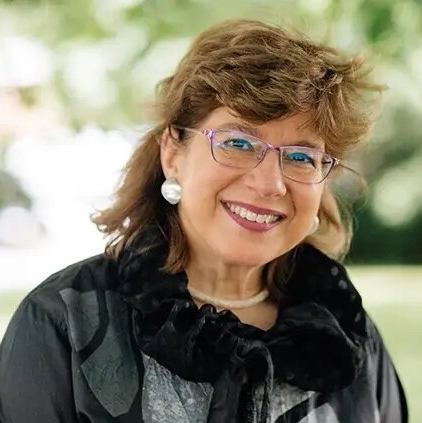‘Why have we come to this?’
“It’s never new.”
Susannah Heschel, the Eli M. Black Professor of Jewish Studies at Dartmouth College, has been asked whether episodes of antisemitism throughout history are markedly different than contemporary manifestations in the United States. She is unequivocal.
“There is such a long history of antisemitism that you can always find it in the background, so there is nothing new in that sense,” Heschel said during a recent Zoom call from Lithuania, where she was conducting research. “But it can be configured in a different way. The combination of antisemitism from the right and the left at the same time, within a democratic society that is proud of its liberalism and freedom — that is startling.”
Heschel will join Lisa Leff, director of the Jack, Joseph and Morton Mandel Center for Advanced Holocaust Studies at the United States Holocaust Memorial Museum and professor of history at American University, and Thomas Kühne, director of the Strassler Center for Holocaust and Genocide Studies at Clark University and Strassler Chair in the Study of Holocaust History, on March 25 for a conversation exploring the history and many manifestations of antisemitism and the efforts that have been made to combat it.

Heschel, who has served as chair of Jewish Studies for 25 years at Dartmouth, has worked to bring academic structure and perspective to complex, nuanced, and emotionally charged discussions.
She noted that it is her responsibility as a professor “to be available to every student enrolled at Dartmouth” and to recognize the multiple narratives they represent.
To that end, she is collaborating with Tarek El-Ariss, chair of Middle Eastern Studies at Dartmouth, to teach a course titled The Arab, The Jew, and Constructions of Modernity, which examines the “parallel experiences of Arabs and Jews coping with the modern world — first embracing modernity, and then later being appalled by it,” Heschel said. “One way we can think about the contemporary nature of the problems we see is that these groups are different for many reasons, from their history to their relationship with Europe, and so on.”
In her Jewish history classes, Heschel said, she has noticed that many of her students have become fixated on the topic of antisemitism, but laments that they are missing out on the fuller story of the Jewish people.
“I believe they’re thinking it will please me if they write about [antisemitism],” she said, “but it does worry me because it reduces Jews to objects rather than subjects.”
“That is not the whole of Jewish history.”
Heschel said she’s looking forward to participating on the Clark panel, noting that she has a fond relationship with the University. She has visited the Strassler Center for lectures and to browse its Rose Library, and counts director Thomas Kühne as a longtime friend. She was close with the late Robert Tobin, former chair of the Department of Language, Literature, and Culture, whom she invited to speak to several of her Dartmouth classes. She also has a familial tie to the University: her daughter studied studio art here.
Heschel recently met with the head of the Judaica Research Centre in the National Library of Lithuania, who expressed surprise about the disturbing rise of antisemitic rhetoric and violence in the U.S. The woman told her there is nothing comparable to it in Lithuania. “We think of America as a sophisticated country backed by two hundred years of democracy, and here’s little Lithuania, where Jews were mass murdered not that long ago, and they aren’t experiencing the kinds of things we’re seeing here.”
The Dartmouth scholar is keen to continue exploring this deeply troubling trend and work toward arriving at both a better understanding of it and an effective response to it.
“Why have we come to this,” she asked, “and what are we going to do about it?”


